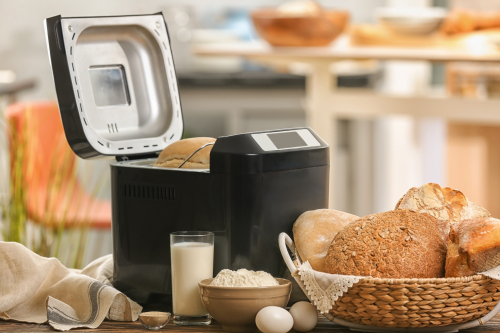Repair or Replace? A Comprehensive Guide to Making the Right Decision for Your Appliances
Deciding whether to repair or replace household appliances can be a challenging decision. With a broad array of factors to consider, this comprehensive guide aims to illuminate the paths you can take when faced with appliance issues. By understanding the lifespan of appliances, the cost implications of repairs versus replacements, environmental considerations, and signs that may indicate repair needs, homeowners can make informed choices.
Understanding the Lifespan of Common Household Appliances
Each type of household appliance has its unique lifespan, which can greatly influence your decision between repair and replacement. Knowing how long you can expect your appliances to last can provide clarity in regards to value and future investment. The average lifespan varies across different appliances.
The Average Lifespan of Major Appliances
Here are some common household appliances along with their typical lifespans:
- Refrigerators: 10-20 years
- Washing Machines: 10-15 years
- Dishwashers: 10-15 years
- Ovens: 10-15 years
- Microwaves: 5-10 years
Understanding these averages gives homeowners a timeline for when to expect replacement or necessary repairs. For instance, if your refrigerator is nearing the 15-year mark, it may be wise to start budgeting for a new one, especially if you notice it struggling to maintain temperature or making unusual noises. Additionally, energy efficiency is another consideration; older models may consume more electricity, leading to higher utility bills.
Factors that Affect Appliance Lifespan
Several elements can impact how long an appliance lasts, such as:
- Frequency of Use: Appliances used daily may wear out faster than those used occasionally.
- Maintenance: Regular servicing can extend the life of appliances significantly.
- Quality: Higher-quality brands often provide better longevity than budget options.
- Environment: Factors such as humidity, temperature, and space can all influence appliance aging.
By keeping these factors in mind, homeowners can take proactive steps to maximize their appliances' lifespan. For example, cleaning the lint filter in your dryer regularly can prevent overheating and extend its life. Similarly, ensuring that your refrigerator's coils are clean and free from dust can improve efficiency and longevity. Monitoring the environment where appliances are located, such as avoiding placing a refrigerator in a garage that experiences extreme temperatures, can also help maintain optimal performance.
Moreover, understanding the signs of wear and tear can be crucial. For instance, if your washing machine starts to shake excessively during cycles, it may indicate an imbalance or worn-out parts that could lead to more significant issues if left unaddressed. By being vigilant and addressing minor problems early, homeowners can often avoid the need for premature replacements and enjoy their appliances for a longer period.
The Cost-Benefit Analysis of Repairing vs. Replacing
Deciding whether to repair or replace an appliance often comes down to a financial analysis. Evaluating both the immediate costs and long-term implications of your choice can help you weigh your options effectively.
Evaluating the Cost of Repairs
When considering repairs, homeowners should first get a detailed estimate from a qualified technician. Here are some questions to consider:
- What is the total cost of the repair?
- Is there a warranty on the repair work?
- How does this cost compare to the value of the appliance?
- Is the appliance under 50% of its expected lifespan?
These considerations will help you gauge whether a repair is a wise investment or if it would be more economical to replace the appliance. Additionally, it's important to factor in the frequency of repairs. If your appliance has required multiple repairs in a short span, it might be a sign of an underlying issue, suggesting that replacement could be the more prudent choice. Furthermore, consider the inconvenience associated with a malfunctioning appliance—frequent breakdowns can disrupt daily life, leading to additional stress and potential costs.
Considering the Price of a New Appliance
When comparing the cost of a new appliance, it is essential to consider not just the purchase price but also the efficiency and potential savings on operational costs. Look for models that not only fit your budget but also offer features that align with your long-term needs:
- Energy efficiency ratings
- Warranty and service plan options
- Customer reviews and brand reliability
This thorough approach will ensure you select an appliance that provides good value over its lifespan. In addition to these factors, consider the environmental impact of your decision. Newer models often come with advanced technology that not only improves energy consumption but also reduces waste. By investing in a more efficient appliance, you may contribute to a more sustainable future while also enjoying lower utility bills. Moreover, some states and local governments offer rebates or tax incentives for purchasing energy-efficient appliances, which can further offset the initial investment.
Environmental Impact: Repair or Replace?
Another essential factor to consider is the environmental impact of your decision. Both repair and replacement come with ecological footprints that deserve scrutiny.
The Environmental Cost of Appliance Disposal
When an appliance is retired, it contributes to waste. Many components are not biodegradable and can take years to decompose. Additionally, the process of manufacturing new appliances generates considerable carbon emissions. This is why understanding the ramifications of disposing of old appliances is fundamental.
The Green Benefits of Appliance Repair
Repairing appliances often presents a greener alternative as it extends the life cycle of the product and reduces waste output. Some benefits include:
- Less landfill waste
- Reduced demand for new production
- Minimized resource consumption
Choosing to repair not only benefits your wallet but also supports sustainability efforts.
The Role of Appliance Efficiency in Your Decision
Energy efficiency plays a crucial role in determining whether to repair or replace your appliance. Increasing efficiency often translates to lower utility bills over time.
How Appliance Efficiency Affects Your Utility Bills
An older appliance, while functional, may consume significantly more energy than modern, efficient models. Energy Star-rated appliances can lead to savings that offset their initial costs. It is essential to consider:
- Energy usage statistics
- The average yearly cost of operation
By analyzing these factors, you may find that upgrading offers substantial long-term savings.
The Impact of Newer, More Efficient Models
Newer models not only save energy but often come with advanced technology and features that enhance their performance. Researching these factors can play a pivotal role in your decision-making process. Consider:
- Smart technology integration
- Improved functionality and features
- Better warranties and service agreements
Assessing the benefits afforded by newer models can lead to a more informed decision.
When to Repair Your Appliance
While many appliances will eventually need replacement, there are specific scenarios where repairing is the best option.
Signs Your Appliance May Need Repair
Some common signs that your appliance may require professional attention include:
- Unusual noises during operation
- Leaking fluids
- Failure to perform essential functions
- Frequent tripping of circuit breakers
If you notice any of these symptoms, it may be time to consult a professional.
Finding a Qualified Appliance Repair Professional
Choosing the right technician for your repair needs is crucial. Start by looking for professionals who have:
- Valid certifications and licenses
- A solid reputation with positive customer reviews
- Experience repairing your specific appliance brand
With the right professional, you can ensure that your appliance will receive proper care, allowing you to make the best possible decision regarding repair or replacement.
In conclusion, the decision to repair or replace your household appliances depends on a multitude of factors including lifespan, cost, environmental impact, efficiency, and signs of malfunction. By carefully weighing these elements, you can make a choice that aligns with both your financial situation and your values.

































